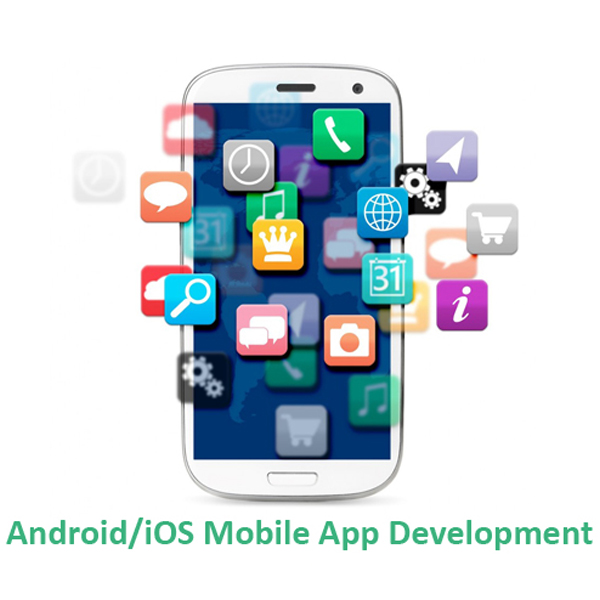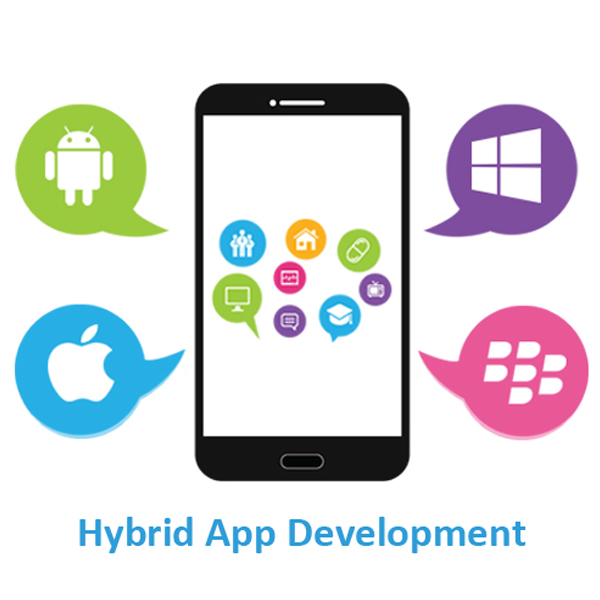There is no dearth on the number of smart phones available these days, the same applies to the number of mobile applications. There was a time when there were only mobile Apps for the purpose email, calendar, contacts and other productivity Apps. There have been many technological advancements since then, which has also resulted in better and more advanced smartphones. Similarly there are now a large number of applications for mobiles that take advantage of mobile features. These include games, GPS applications for location based services, ticket purchases, order tracking, etc.

There are mainly three types of mobile Apps:
- Native Apps: This is necessary for special development process for mobile platforms like iOS and Android App Development.
- Web-Based Apps: A web-based App is one that is made using HTML, CSS and JavaScript and does not have access to the advanced features of the mobile device.
- Hybrid Apps: As the name suggests the hybrid Apps are a mix of both the native App and Web-based App. This type of application has a special design to work on many different types of devices and multiple platforms (operating systems) as well. It is possible to build such Apps using technologies like Zamrin, React Native, Senca touch, etc.
SUMMARY
There are mainly three types of mobile-phone applications, namely- Native Apps, Web-Based Apps, and Hybrid Apps. Hybrid apps is a mix of both Native & Web-Based apps.
What are Hybrid Apps
As the name ‘Hybrid Apps’ suggests, it has heterogeneous sources. These type of applications are easier to develop and do not require the skill of an experienced mobile App developer. Popular technologies like Javascript and HTML can help to develop hybrid applications.
A rendering engine is necessary on both Android and iOS mobile application development platforms as well.
It is necessary for hybrid application since it’s development does not use conventional technology. Web kit is a browser (rendering engine) that can render an App and display it in full screen view.
Hybrid Applications have the added advantage that they can implement an abstraction layer. This layer exposes the native API of the devices, allowing the application to make use of the device capabilities. A Web-Based Application cannot access a mobile’s capability due the existence of a security layer between a browser and a device.
There are several mobile application development softwares that allows those who have little or no programming knowledge to make fancy mobile applications. Apache Cordova is one such application which is better (formally) known as PhoneGap. The way this works is by creating a JavaScript Application layer over the native API.
SUMMARY
Hybrid Apps have heterogeneous sources and are easier to develop. It can implement an abstraction layer which exposes the native API of the devices which is an added advantage.

Benefits of using Hybrid Apps
- An hybrid application is an App that is specially developed for a mobile platform and not a browser. Hence it tends to offer an enhanced user experience as well. Several users pay attention to detail; for such users a hybrid application is more suitable.
- The Hybrid ones easier and faster to build. Reduced development improves the availability of mobile apps and also gives them more flexibility and slight freedom from network dependence.
- A Native Application takes longer to build and it is platform specific. This means a mobile App developed for an iPhone (iOS platform) will not work on an Android device. Similarly an Android mobile App will not work on the iOS platform (iPhone). Thus, there is not so much flexibility with a native application.
- Development of Hybrid Apps may not use the same technology as native Apps, however, they are still able to take advantage of mobile features like camera, GPS, messaging. Thus, a hybrid App can provide the user with a good user experience and also have all the bells and whistles similar to a native App.
- A Native App has an edge over web-based Apps since web-based cannot access the core features of the device. However, with Hybrid-Apps this is not the case. They have access to core phone features.
- Hybrid App can make use of the advanced features of a mobile device like Geo-location, camera, accelerometer, and more.
- The distribution method for this is also via the play store or App store. It does not take advanced level programming knowledge to develop such Apps, which are cross platform and also can run locally on the device.
Thus, an hybrid mobile applications has an edge of native mobile Apps and is suitable for a wide range of users and businesses. For businesses who need a mobile App developed in quick time for multiple platforms, the hybrid-apps are more suitable. The added advantage being that it is also more economical since only one app is necessary. While for a native App multiple Apps are necessary one for every platform like iOS, Android, etc.
SUMMARY
Hybrid Apps have multiple advantages and edge over native mobile apps, since it is easier and faster to build and offers an enhanced user experience. They have access to core phone features and can also make use of advanced features such as- camera, accelerometer, etc.
The Bottom Line
Even though there are 3 types of mobile applications, Hybrid Apps comes as the best mobile application solution as it has access to all the core features of a phone and is suitable for wide range of users and businesses.





